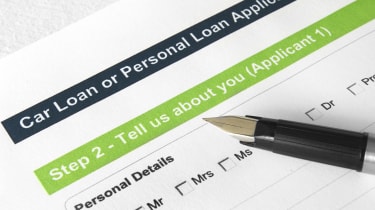PCP car finance deals under scrutiny
PCP agreements are an incredibly popular method of financing a new car, but there’s increasing concern over the way they’re marketed

Britain’s motor industry is in rude health. Over 2.5 million cars were sold in the UK last year and the vast majority of these were bought using PCP, or Personal Contract Purchase, agreements. Now, though, there are growing reports that the way these deals have been sold to customers may be inaccurate – or even misleading.
What are PCP deals?
The process of taking out a PCP deal is fairly straightforward. You put down a deposit and agree to fixed monthly repayments, which are typically made over a three-year period. At the end of the contract, you can either hand the car back, make a final ‘balloon’ payment to own the car outright or, if the car’s value is actually higher than the balloon payment, you can put this surplus towards the deposit on a new car.
Our in-depth guide to PCP has more detailed information on how these deals work.
So what’s the problem?
There’s no suggestion that PCP deals themselves are anything other than sound financial agreements – it’s the way they’re presented to customers that may be the problem.
The issue lies with the final balloon payment. Graham Hill, the National Association of Commercial Finance Brokers' (NACFB) car expert, has claimed that when taking out a PCP agreement many buyers are informed that if their car’s value is higher than the balloon payment at the end of the deal, they’ve made a profit or built up equity.

That balloon payment is technically known as the Guaranteed Minimum Future Value, or GMFV. It’s an assurance that the car you’re purchasing will be worth a minimum amount at the end of the contract. If the car is worth more than the GMFV at the end of the PCP agreement (as many are), this isn’t equity or profit – any potential surplus is actually generated by your monthly repayments, and accumulates due to the car depreciating less than the finance deal predicted it would.
The NACFB's car expert is arguing that if customers have been told that any favourable difference between the car’s value and the balloon payment represents profit or equity, then PCPs have been mis-sold. Claims lawyers are now investigating whether this potential misrepresentation can be pursued legally, much like Payment Protection Insurance (PPI) before it.
Another potential issue with Personal Contract Purchase agreements is that while the monthly repayments and APR rates may be attractively low, the actual amount of interest payable over the course of the contract can be higher than a comparable Hire Purchase agreement. That’s because PCP deals are actually made up of two loans: the first is the main capital repayment loan (where monthly payments go towards the money borrowed as well as any interest charges) and the second is an interest-only loan that covers the final balloon payment.
Because your monthly repayments are only decreasing the first of these loans, the total amount of money you’re paying interest on doesn’t decrease as much as it might, due to the fact that the balloon repayment loan goes untouched until the end of the contract. This means that over the course of the agreement, you may actually pay more interest with a PCP compared to a similar HP agreement.
Could I be due compensation?
Perhaps, but not yet. Claims lawyers are still investigating the scale of the problem and whether or not it’s in their interest (and yours) to pursue legal action over any misrepresentation that may have occurred. Any potential mis-selling is likely to be the result of ill-informed dealers rather than anything more sinister but, even if this is the case, car buyers have the right to expect clear and accurate advice when taking out a contract.
The bad news is that with around two million PCP agreements taken out last year alone, if claims lawyers do decide it’s worth pursuing the finance companies, a new type of of annoying automated telephone call may soon start to appear.
Most Popular
Tips & advice

Car dashboard warning lights: what does each symbol mean?

Electric car charging stations: public networks, charger types, apps and maps






